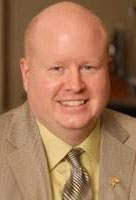Hamilton County officials ask public to reconsider Thanksgiving family events
Recently, the number of COVID-19 cases and deaths in Hamilton County has increased drastically.
In Hamilton County during the past 40 days, there have been 32 COVID-related deaths (Oct. 1 to Nov. 9) compared to 18 COVID-related deaths in the entire 135 days prior (May 18 to Sept. 30). Earlier this year, there were 91 COVID-related deaths for the 61 days from March 29 to May 17.
These early high numbers were due to the fact that protocols were not sufficient among elderly population in nursing homes and the medical community needed to find the best ways to treat patients with COVID.
The increased numbers now, health officials say, are due to relaxed diligence at in-home social gatherings. Therefore, city and county officials in Hamilton County met to discuss steps each community can take to help slow the spread of this deadly disease.
Contact tracers have learned that COVID-19 is being transmitted at private social gatherings in homes such as birthday parties, weddings and dinner parties. When people are meeting in each other’s homes, they are not practicing standard precautions such as wearing face masks, remaining physically distant and washing hands frequently.
Therefore, officials in Hamilton County are strongly encouraging people to reconsider their in-home and family events, especially with the upcoming Thanksgiving holiday, and ensure precautions are taken to avoid exposures.

Brainard
“We must remain diligent in our fight against this disease,” Carmel Mayor Jim Brainard said. “I know that many are experiencing COVID fatigue and have relaxed their standards when meeting with others socially. This has created a dangerous situation for those coming into contact with people who have been to a family event where the virus spread. It is very tempting with Thanksgiving just around the corner to think that celebrating together with family or a small group of friends is harmless. Our data shows that the opposite is true. It is the in-home gatherings that are causing the increase in COVID cases and deaths. The sacrifices we make now can save the lives of loved ones so that you can celebrate for many more years to come. We need to remain resolute in our determination to protect our community for a little while longer.”
Brainard added that state and county officials may elect to close the businesses and limit streets to essential travel only if infections continue to spiral upward, but he expressed hope that those sorts of drastic restrictions won’t become necessary.
College students need to prep now for return home
In a couple weeks, thousands of college students will return to Hamilton County for the Thanksgiving holiday – and in some cases, for the rest of the semester. With them comes a higher risk of COVID-19 exposure to their families.

Walker
“Now is the time to start talking to your college-age kids about the return home,” said Christian Walker, emergency preparedness coordinator for the Hamilton County Health Department. “They need to start getting tested for the virus and quarantining themselves to limit exposure. The last thing you want is your child coming home for the holidays and infecting the entire family.”
In many cases, colleges have become hot spots for the virus, and studies suggest younger people are often asymptomatic, meaning they can unintentionally transmit the virus to others. Some colleges and universities, like Indiana University in Bloomington, are encouraging students who live on or near campus to get tested before they head home, but testing is not mandatory.
“It’s also important to remember that a single negative test is not enough to assure you’re not a carrier,” Walker warned. “The test is only a snapshot in time. The virus can take as long as 14 days to incubate, meaning you could test negative today and be positive in two weeks.”
For that reason, the Hamilton County Health Department also recommends college students quarantine at least two weeks prior to Thanksgiving – either at school or by leaving campus early to do so at home.

Ginder
“They can’t be out partying and shutting down the bars,” said health education specialist Jim Ginder. “Hosting private parties is a no-no too. When they are not in class, students need to be sequestered in their room. No exceptions.”
The Centers for Disease Control is also warning about the dangers of travel during the holiday season. They recommend driving alone if you can. Flying, while relatively low risk because of how air circulates and is filtered on airplanes, can still put students at risk during long layovers and in security lines. Ride sharing is also discouraged.
The Health Department also suggests college students wear a mask inside the house until they can be certain they are not contagious. They should also get a flu shot if they have not already received one.
